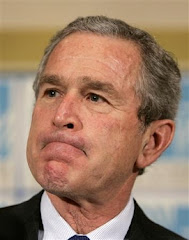In most inclusive count, Clinton has the numbers
By Jonathan Last
Inquirer Editorial Board
Lost in the excitement of Barack Obama's coronation this week was an inconvenient fact of Tuesday's results: Hillary Clinton netted approximately 150,000 votes and is now poised to finish the primary season as the popular-vote leader. In some quaint circles, presumably, these things still matter.
Real Clear Politics keeps track of six versions of the popular-vote total. They are, in ascending order of inclusivity: (1) the popular vote of sanctioned contests; (2) the total of sanctioned contests, plus estimated votes from the Iowa, Nevada, Maine and Washington caucuses; (3) the popular vote plus Florida; (4) popular vote plus Florida and the caucuses; (5) the popular vote plus Florida and Michigan; (6) popular vote plus Florida, Michigan, and the caucus estimates. After Tuesday, Clinton now leads in two of these six counts.
If you believe that the most important precept in democratic politics is to "count every vote," then the sixth category is the most inclusive, and here Clinton leads Obama by 71,301 votes. Of course, this includes the Michigan result, where Sen. Obama had removed his name from the ballot. So while it may be the most inclusive, it may not be the most fair.
The third and fourth counts - the ones which include Florida - seem more fair. Here, Obama is clinging to a slight lead of 146,786 votes (257,008, with the caucus estimates). However, with Puerto Rico, Montana, and South Dakota remaining, he will almost certainly finish behind her in these counts, likely by a few hundred thousand votes.
But could Clinton take over the lead in all of the popular-vote tabulations? Quite possibly. In Puerto Rico's last major election, two million people voted. Let's assume that turnout for this historic vote - Puerto Rico has never had a presidential primary before - will be equal to or greater than that turnout.
If Clinton were to win Puerto Rico by 20 points she would pick up at least a 400,000-vote margin. This would allow her to swamp Obama in the popular-vote counts, which include Florida, making her the leader in four of the six permutations of the popular vote. At that point, Obama would be left clinging to the least-inclusive count, which he now leads by 441,558 votes (551,780, including caucuses).
To understand how razor-thin this majority is, consider that if the Puerto Rico turnout is slightly larger than we have imagined - or Clinton's margin is slightly greater - then Clinton would finish the primary process leading in every conceivable vote count. With two million voters, a 28 percent victory would put Clinton over the top even in the count, which excludes Florida and Michigan and includes estimates for Obama's caucus victories.
It is this looming prospect which explains the tremendous pressure Obama partisans and the media are putting on Clinton to drop out of the race. They want her gone now because they understand that she has an excellent chance of finishing as the undisputed people's choice.
Would it matter if Clinton were the undisputed (or even disputed) popular-vote winner? That's hard to say. The question is, matter to whom? The superdelegates will determine the nominee and there's no telling what will sway them. They have no objective criteria from which to make their decisions. But if they were to deny the popular-vote champ the nomination, there is a real question of whether Democratic voters would reconcile themselves to the decision. As it is, much of the talk about Democratic defections in November has been overstated.
Partisan voters almost always come home after their candidate loses. The problem arises when a candidate's supporters believe that their guy (or gal) didn't lose. Expect the chorus calling for Clinton's withdrawal to grow louder over the next week, with people insisting that she has no "path to victory."
Clinton's path is both obvious and simple: Win the popular vote and force Barack Obama and his cheerleaders to explain why that doesn't matter.
Friday, May 23, 2008
Subscribe to:
Post Comments (Atom)
Blog Archive
-
▼
2008
(98)
-
▼
May
(18)
- A new party is needed.
- OBAMA CAN'T WIN
- Rule breakers
- Hillarys best bet
- Here is an article from the Philadelphia Inquire
- Why be a Democrat?
- President of the 57 no 48 United States
- A BLACK MAN IS HIS BIGGEST ASSET
- GREAT IDEA
- Who said she didn't have chrisma
- :Lay of my wife
- We will not vote
- Is he for real
- NO LOBBYISTS!
- Why vote for McCain
- Is he the leader he thinks he is?
- Is he the leader he thinks he is?
- How we got here.
-
▼
May
(18)
Other sites of note

Boy do I miss Moms cookin
No comments:
Post a Comment